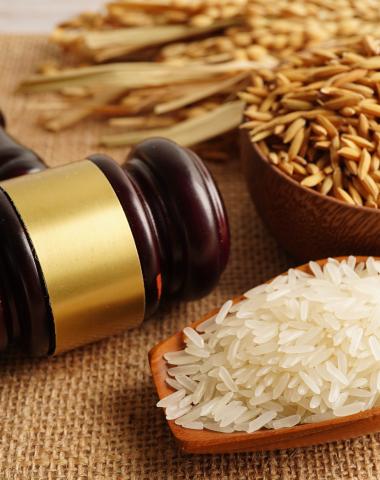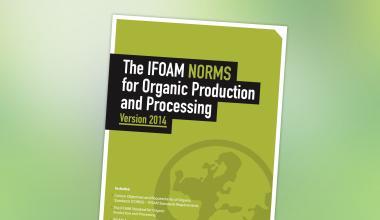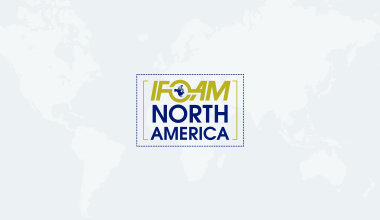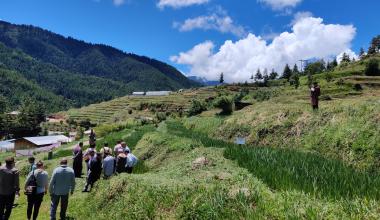IFOAM – Organics International welcomes the U.S. Court of Appeals’ decision to uphold a 2024 ruling that dismissed a legal challenge to the U.S. Department of Agriculture’s 2023 rule on grower group certification. The U.S. Court of Appeals’ Ninth Circuit concluded that the plaintiff, a U.S. organic hazelnut grower, had not demonstrated sufficient harm to his business to establish legal standing.
This decision affirms that grower group certification, though managed differently, upholds the same integrity and oversight as any other form of organic certification.”
Co-CEO, Organic Trade Association
Grower group certification plays a critical role in making organic markets accessible to millions of small-scale farmers worldwide. IFOAM – Organics International reaffirms its strong support for this certification model, which enables smallholder farmers, many of whom care deeply for the land and contribute significant ecological benefits, to participate in global organic trade.
We recognise that internal control systems (ICS), which underpin group certification, require robust governance. While the oversight mechanisms differ from those used in individual certification, both systems must maintain a high level of rigour to ensure organic integrity.
Once again, the acceptance of group certification in the US organic regulation has been questioned, and once again those opposing it have lost. On behalf of the global organic movement, we extend our deep gratitude to our organic friends in the US who have fought and won this battle and thereby preserved market access for millions of organic smallholders worldwide. We continue to believe in the group certification system, accepted by all other major organic regulations, and are relieved that the US will continue to align with the rest of the world in accepting smallholders in the global organic supply chains.”
President, IFOAM – Organics International
Looking ahead, IFOAM – Organics International remains committed to fostering a diverse and inclusive organic sector that reflects the varied realities of farming systems and market needs around the world. We will continue to advocate for smallholder farmers, promote strong and credible certification systems, and counter persistent misconceptions about grower group certification.
Organic group certification is a recognised global practice used for decades, rooted in IFOAM Norms that have served as inspiration for national organic regulations and private organic and sustainability standards. Close to 4 million smallholders are certified through this mechanism, supplying organic commodities such as coffee, cocoa, bananas, cotton, nuts, honey, and more.
This certification model is built on the principles of collaboration and mutual support among small-scale producers. By pooling resources, these producers share a collective responsibility to meet organic standards, ensure access to markets that might otherwise be challenging due to the small scale of their operations and the high costs of individual organic certification. Such an approach fosters community engagement, knowledge sharing, mutual trust, and control. Central to the success of group certification is the implementation of an Internal Control System (ICS), a well-documented set of procedures and checks established by the group to ensure each member complies with organic standards.
Properly structured, an ICS can provide an effective mechanism for oversight that contributing to the reliability and integrity of the certification process equivalent to inspecting and certifying individual producers. Internal ICS inspectors have the advantage of familiarity with the local conditions, farming systems and community culture. This knowledge helps to identify and mitigate risks of fraud doing.
Grower groups are subject to third-party certification. An ICS is not a substitute for outside verification. To the contrary, the ICS provides oversight beyond what most remote foreign certification body have the capacity to perform. A third-party inspector from an external control body audits the integrity of the entire system, which includes checking documentation, assessing the competencies of the ICS Staff, conducts selected joint or witness audits of a defined subset of members, and takes samples to test for residues of unauthorized substances in produced commodities, soil, green material, or equipment. Discrepancies between internal documentation and the findings of the audit can result in non-compliances sufficient for the decertification of the entire group. Grower groups are only as strong as their weakest link. Consequently, the entire group is motivated to mitigate these risks and to ensure the integrity of its internal controls. Grower groups can take immediate action against those who are egregiously non-compliant.
The enduring success of organic group certification underscores its crucial role in global organic farming. The synergy between internal and external auditing creates a robust mechanism that goes beyond compliance that actively mitigates risks and upholds the integrity of organic certifications. This resilient and cooperative foundation aims to defend against fraud and seeks to drive the integrity of the global organic movement toward a healthy, sustainable, and productive future.



